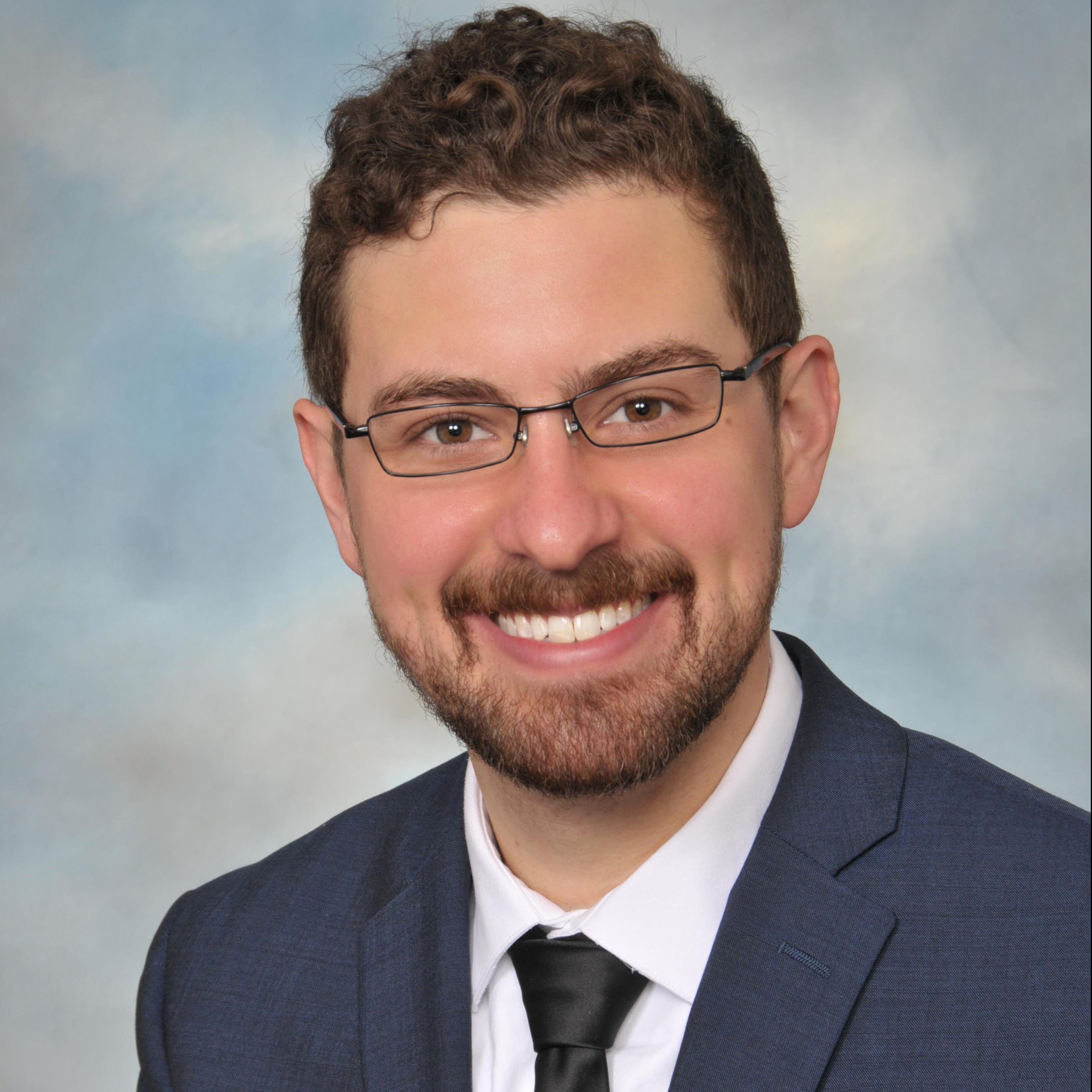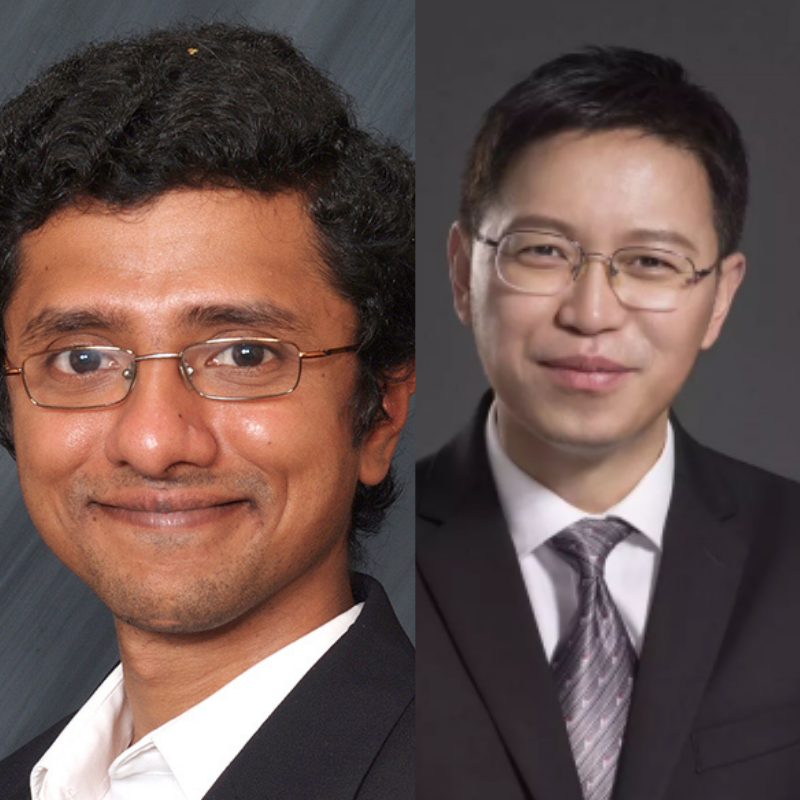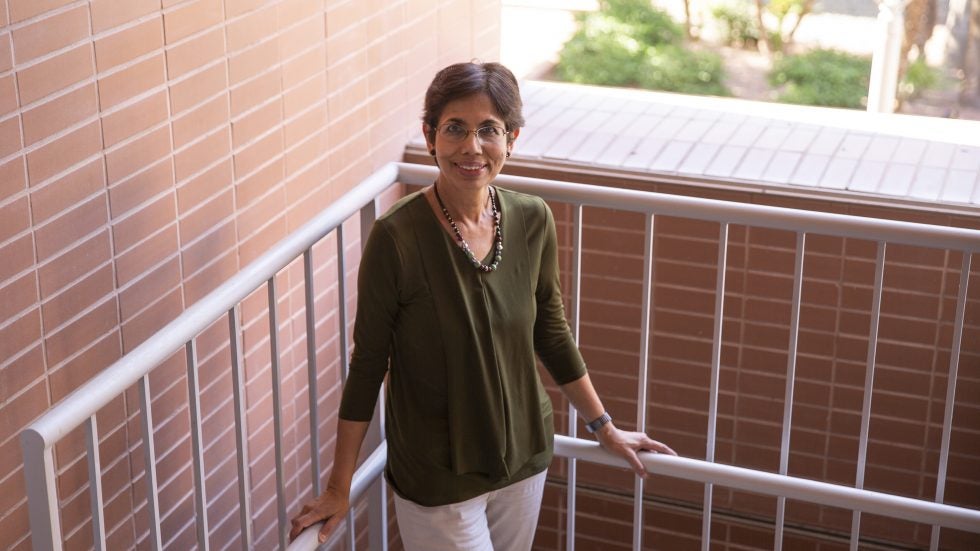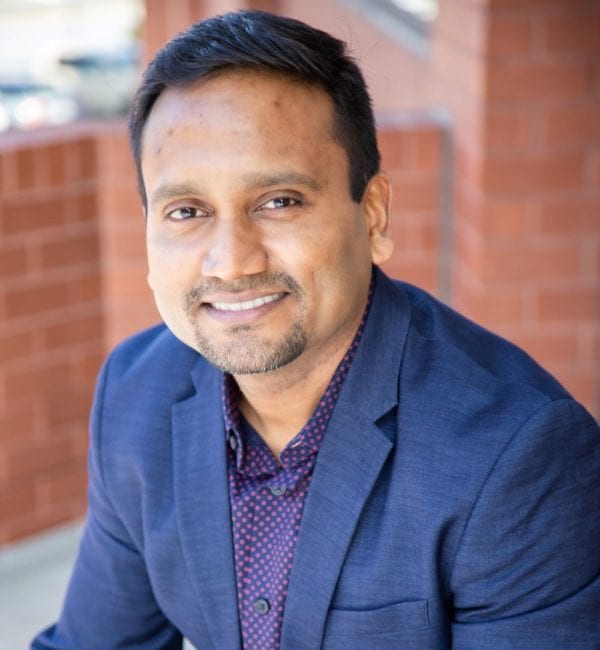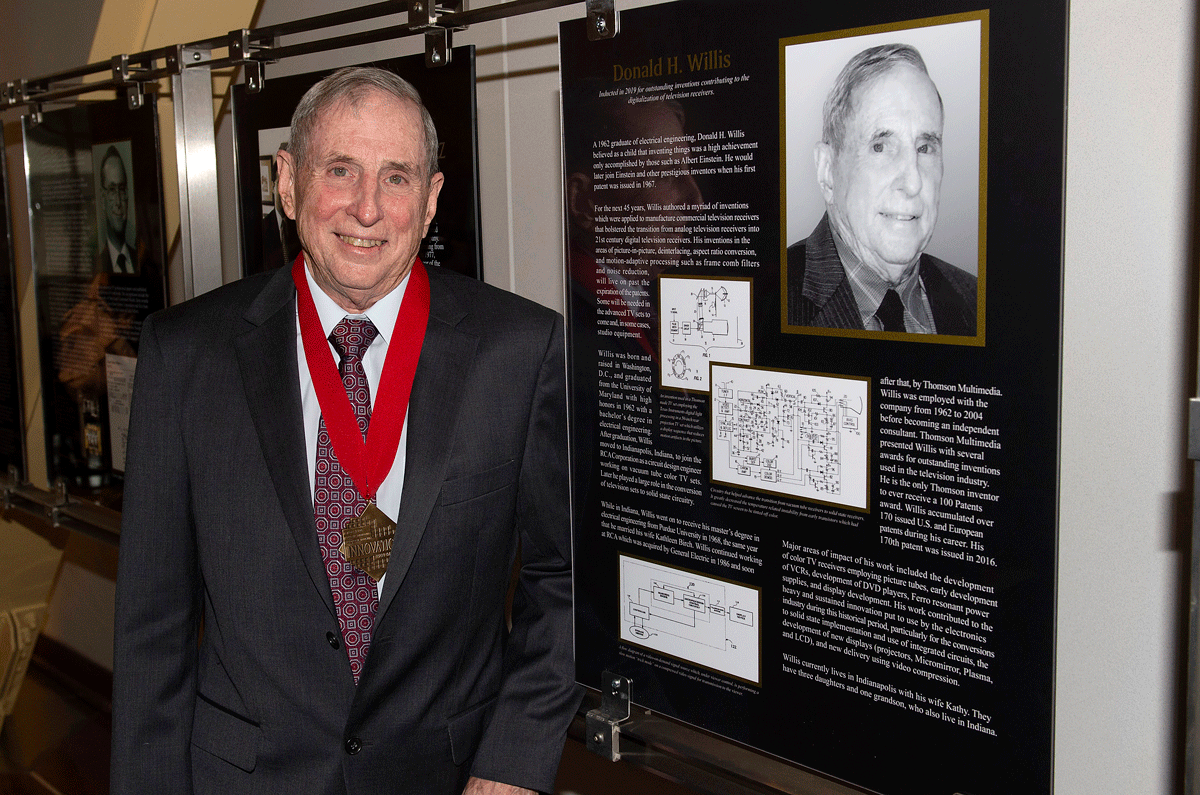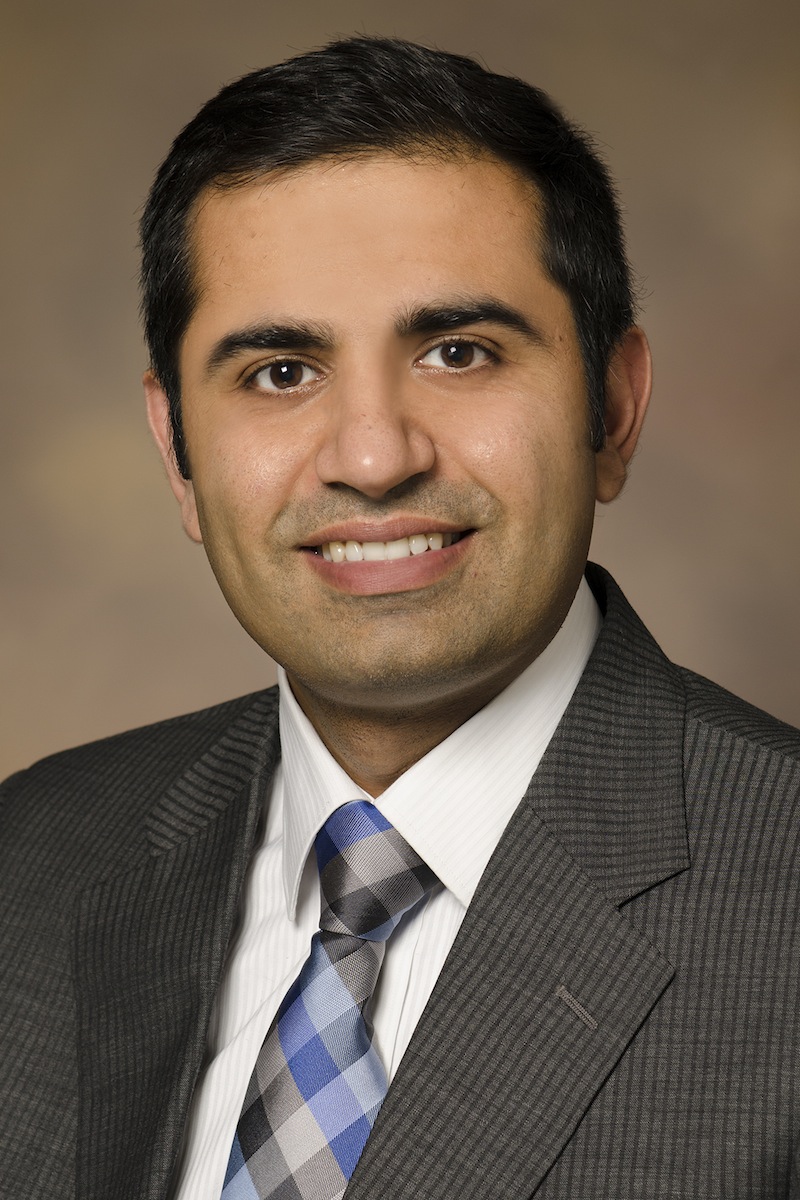News Story
ECE Names 2021 Distinguished Alumni

L-R: Craig Lawrence, Johannes Thorsteinsson, Kemal Sönmez, and Haitao (Heather) Zheng.
The Electrical and Computer Engineering (ECE) Department has selected Craig Lawrence, Johannes Thorsteinsson, Kemal Sönmez, and Haitao (Heather) Zheng as 2021 Distinguished Alumni for their leadership and meritorious contributions to the field of engineering, their humanitarian efforts, and the application of their engineering education to other disciplines.
Craig Lawrence
Research areas: Optimization, AI, Machine Learning
Dr. Craig Lawrence is the Director for Systems Research at the Applied Research Laboratory for Intelligence and Security and a Visiting Research Scientist with the Institute for Systems Research at the University of Maryland at College Park. Prior to the University of Maryland, Dr. Lawrence was a Program Manager for the Defense Advanced Research Projects Agency (DARPA) Strategic Technology Office (6/2013 - 4/2019). At DARPA, Dr. Lawrence created and managed the Battle Management Command and Control (BMC2) portfolio of programs, where he was responsible for five major DARPA programs, including the creation of a family of four unique programs (plus multiple studies, SBIR projects, and a young faculty award) valued at over $180M addressing critical BMC2 technology gaps within the services and to provide key enablers for the DARPA/STO system of systems (later “Mosaic Warfare”) vision. Dr. Lawrence was awarded the DARPA Meritorious Public Service Medal for his service (2019).
From 1999 to 2013, Dr. Lawrence was in industry, culminating with the position of Technical Director in the Technology Solutions division (now Fast Labs) at BAE Systems where he managed a group focused on defense and intelligence R&D. He was recognized with the BAE Systems Bronze Chairman’s Award in 2005, and later the BAE Systems Technology Transition of the Year award, for the development of Intelligence, Surveillance, and Reconnaissance (ISR) planning tools. Dr. Lawrence ran the DARPA Conflict Modeling, Planning, and Outcome Experimentation (COMPOEX) program developing a modeling and simulation framework, planning tools, and modeling technologies in support of country-level strategic planning (recognized with the BAE Systems Bronze Chairman’s Award in 2008). Dr. Lawrence also led the DARPA Behavioral Learning and Adaptive Electronic Warfare (BLADE) program (recipient of the Technology Solutions Best Collaboration of the Year award for the proposal effort) applying machine learning technology to learn behaviors of complex unknown RF threats in real-time and developing control-based technologies to construct surgical jamming strategies.
Lawrence received his B.S., M.S., and PhD in Electrical Engineering from the University of Maryland, College Park. He was nominated by Professor Andre Tits for this award.
Mustafa Kemal Sönmez
Research areas: Machine Learning for Precision Medicine and Early Detection of Cancer, Computational Genomics/Biology, Speech Recognition
Dr. Kemal Sonmez is a Co-founder and Chief Scientific Officer of Omics Data Automation (ODA), whose mission is to power Precision Medicine by integrating patient data at scale and enabling collaboration across medical centers to generate actionable insights from large patient cohorts. He is also an Associate Professor at the Knight Cancer Institute (Cancer Early Detection Advanced Research Center) at Oregon Health and Science University School of Medicine and an affiliated faculty member at Children’s Cancer Therapy Development Institute.
After a career that spanned roles in engineering research and development in Silicon Valley working on various aspects of speech technology at SRI International, Kemal became part of several DARPA initiatives on Systems Biology and made a career transition to academic biomedical research to join OHSU School of Medicine as a faculty member in 2008. At OHSU, he led a large collaboration with Intel, Dana Farber Cancer Institute, and Ontario Institute for Cancer Research on building a Collaborative Cancer Cloud (CCC) for secure federated learning across institutions. He joined the Knight Cancer Institute’s Cancer Early Detection Advanced Research (CEDAR) center in 2016, and currently works on using large scale analyses of electronic health records and insurance claims data for identifying high risk populations for early detection.
In 2016, Kemal became the co-founder and CSO of Omics Data Automation, a medical data integration startup that aims to bring together all patient data across institutions to enable automated integration and large scale machine learning solutions in order to improve care, primarily in oncology. ODA has found prominent academic medical center partners such as UCLA (ATLAS, population health initiative) , UCSF (HOPE consortium for pregnancy and infant outcomes), and Providence Cancer Center (virtual molecular tumor boards).
Kemal received his Ph.D. from the University of Maryland and did postdoctoral work in computational biology at the Department of Applied Mathematics at Brown University. Kemal lives with his wife and two children in Portland. He was nominated by Professor John Baras for this award.
Johannes Thorsteinsson
Research areas: Telecommunications, Media & Technology Investment Banking
Johannes Thorsteinsson serves as SVP Finance and Treasurer of T-Mobile, where he leads the Company’s Capital Structure Strategy and Capital Markets Issuances, Structured Finance, Risk Insurance Management, and Cash Management. Under his leadership, T-Mobile has been one of the most active and successful issuers in the US Debt Capital Markets, including the most active corporate issuer of IG debt in 2020 and most active issuer of HY debt in 2021, all while significantly decreasing the average cost of debt of T-Mobile’s capital structure and simultaneously increasing its weighted average maturity.
Prior to T-Mobile, he served as Managing Director for Deutsche Bank in its Telecom, Media & Technology Investment Banking Group. In his 13-year career at Deutsche Bank, Johannes worked on Debt & Equity Capital Markets and M&A transactions with more than $100B of completed transaction value, including advising SoftBank on their acquisition of Sprint in 2012 and all of T-Mobile’s capital market transactions since 2013. During his Investment Banking Career, he worked closely with many of the world’s leading communication and technology companies across multiple sectors and geographies.
Johannes holds an MBA and a Master of Science in Electrical Engineering from the University of Maryland, and a Bachelor of Science in Computer Engineering from the University of Iceland. A native of Iceland, he grew up in Germany but has called the U.S. his home for the past two decades.
Johannes lives with his wife and three children in Seattle, where they are avid enthusiasts of the incredible year-round activities in the Pacific Northwest including biking, hiking, and skiing. Thorsteinsson was nominated by Professor Ray Liu for the award.
Haitao (Heather) Zheng
Research areas: wireless networking, mobile systems
Haitao (Heather) Zheng is a Neubauer Professor of Computer Science at the University of Chicago. She received her PhD in Electrical and Computer Engineering from University of Maryland, College Park in 1999. Prior to joining University of Chicago in 2017, She spent 6 years in industry labs (Bell-Labs, NJ and Microsoft Research Asia), and 12 years at University of California at Santa Barbara. At UChicago, she co-directs the SAND Lab (Security, Algorithms, Networks and Data) together with Prof. Ben Y. Zhao.
She was selected as one of the MIT Technology Review’s TR 35 (Innovators Under 35, 2005) for her work on Cognitive Radios; her work was featured by MIT Technology Review as one of the 10 Emerging Technologies (2006). She is a fellow of the World Technology Network, and an IEEE Fellow.
Over her 20 years in research labs and academia, her research has evolved and adapted to target important high impact research problems. In the past, this has covered significant ground in wireless networking, mobile systems, network measurements and security. Most recently, she is focusing her attention on two broad areas: mobile/IoT sensing and its implications on security and privacy, and security & privacy of deep learning systems. Her research work has been frequently featured by media outlets, such as New York Times, Boston Globe, LA Times and MIT Technology Review. Zheng was nominated by Professor Ray Liu for the award.
Published November 29, 2021
